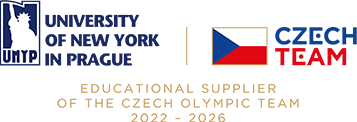International Student Services

Your Home Away from Home in Prague
At the University of New York in Prague, we are committed to supporting international students’ success and academic growth. From the moment you’re accepted to your arrival and throughout your studies, our comprehensive student support services are designed to make your experience smooth, safe, and enriching.
➡️ Personalized Pre-Arrival Support
Preparing for your move to Prague? Our team assists with every detail of your transition:
- Student visa guidance for studying in the Czech Republic
- Help finding safe and affordable student housing in Prague
- Arrival planning and airport pick-up recommendations
- Support with Czech health insurance for international students
➡️ Dedicated Onboarding & Orientation
Our international orientation helps you settle in with confidence:
- Welcome sessions tailored to first-time international students in Prague
- Help with opening a Czech bank account and mobile services
- City tips, public transport guides, and safety information
➡️ Academic & Career Support
UNYP offers continued support throughout your education:
- Academic advising and tutoring resources
- Internships and career development for international students
- CV workshops and job fairs with global companies in Prague
➡️ Legal & Administrative Assistance
Need help navigating local bureaucracy? We’ve got you covered:
- Help registering with the Czech Foreign Police (residency requirements)
- Residence permit extensions and renewals
- Czech healthcare access support
➡️ Wellness, Counseling & Community
Studying abroad isn’t just about academics — your well-being matters:
- Free student counseling and mental health services
- Student clubs, cultural events, and weekend trips
- Peer mentorship programs for international students

Ready to Join UNYP?
Our International Office is here for you every step of the way. Whether you’re looking for guidance on how to get a student visa, searching for accommodation, or just need a friendly face in a new city, UNYP is committed to your success as an international student.
For further information or assistance, please contact us by email at internationaloffice@unyp.cz or visit the International Student Services Office.
UNYP Chronicle Newsletter
The e-mail address you provide will be used only to send you the newsletter. Your privacy is important to us.

Contacts
University of New York in Prague
Londýnská 41, 120 00 Praha
ID no: 25676598
Phone:
+420 224 221 261
Email: unyp@unyp.cz
Kazakhstan
UNYP Representative Office
Yelebekov Street 10/1
BC Venus, Block 1
Almaty, Republic of Kazakhstan
Phone: +7 777 557-59-87









